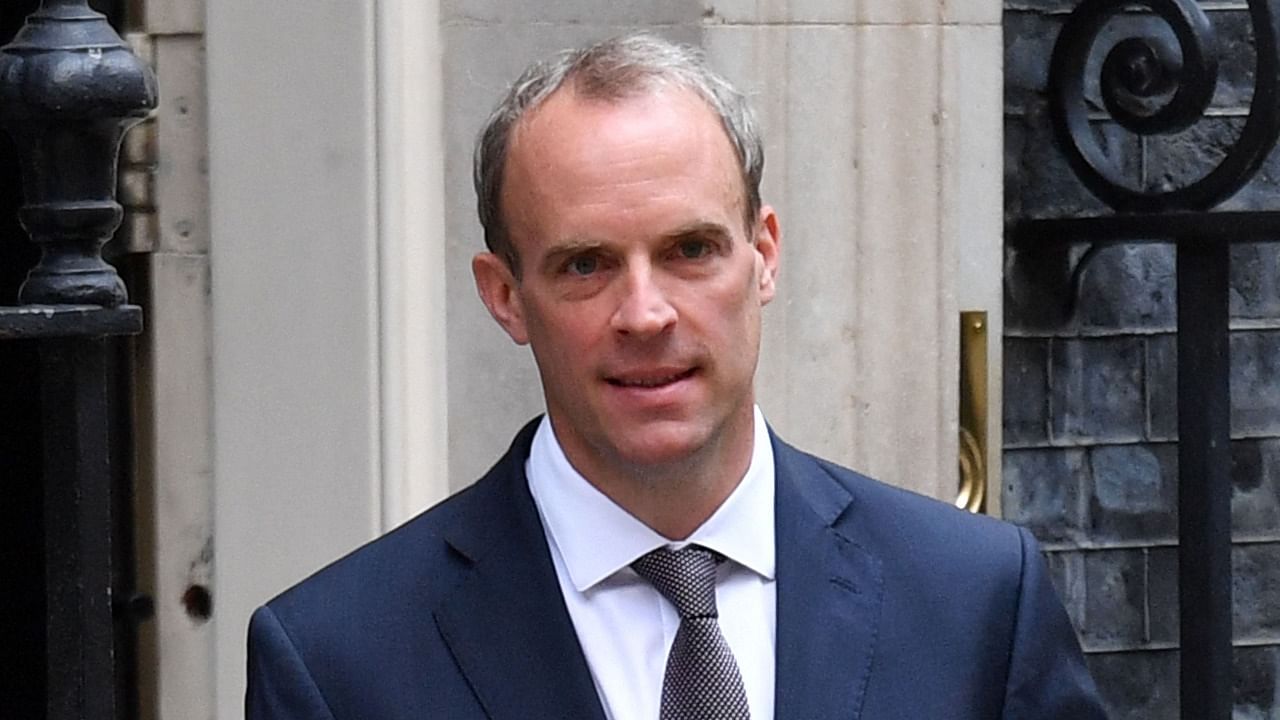
Britain's Foreign Secretary Dominic Raab on Friday defied demands to quit after failing to make a telephone call to help translators fleeing Afghanistan, saying the Taliban's rapid advance made contact impossible.
Raab was on holiday in Crete when his office was advised to call his Afghan counterpart to urge him to help evacuate local translators who had helped British forces.
But the call was never made, leading to demands that Raab quit and accusations that Britain had abandoned the translators.
"While the Foreign Secretary lay on a sun lounger, the Taliban advanced," said the main opposition Labour party's foreign affairs spokeswoman Lisa Nandy.
"The Foreign Secretary should be ashamed and the Prime Minister has serious questions to answer over why he remains in the job."
But Raab defended his actions, hitting out at media reports as "inaccurate".
The call was delegated to a junior minister as he was "prioritising security and capacity" at Kabul airport, on the advice of those overseeing the crisis response.
"The Afghan Foreign Minister (Haneef Atmar) agreed to take the call, but was unable to because of the rapidly deteriorating situation," he said in a statement issued by his office.
"The whole of government has been working tirelessly over the last week to help as many people evacuate from Afghanistan as possible," he added.
Raab's office was advised last Friday to call Atmar as the Taliban swept towards Kabul.
The minister said the government's decision to prioritise security at the airport "was the right one".
"As a result, 204 UK nationals and their families, Afghan staff and other countries citizens were evacuated on the morning of Monday 16 August," he said, adding that 1,635 had since been flown out.
The government has been under fire for its policy towards translators who held British officials and military, with accusations it was not doing enough to help.
On August 4, it said it aimed to relocate the families of 500 staff who supported British troops "as soon as possible" -- some 2,500 individuals in total.
It had already relocated 1,400 Afghan staff and their families since May.
On Tuesday, a separate scheme was unveiled with the aim of relocating an initial 5,000 vulnerable Afghans in the first year, with plans to go up to 20,000 in the long term.